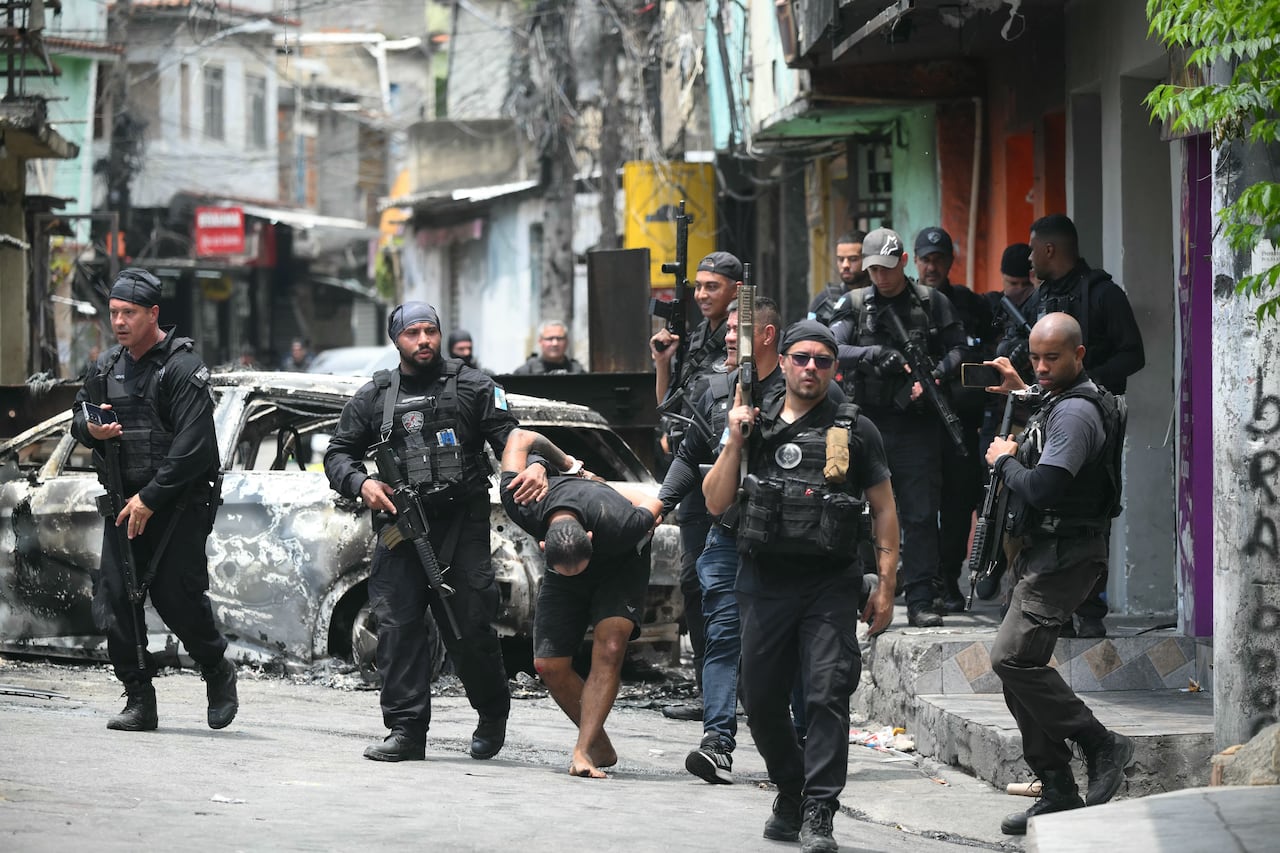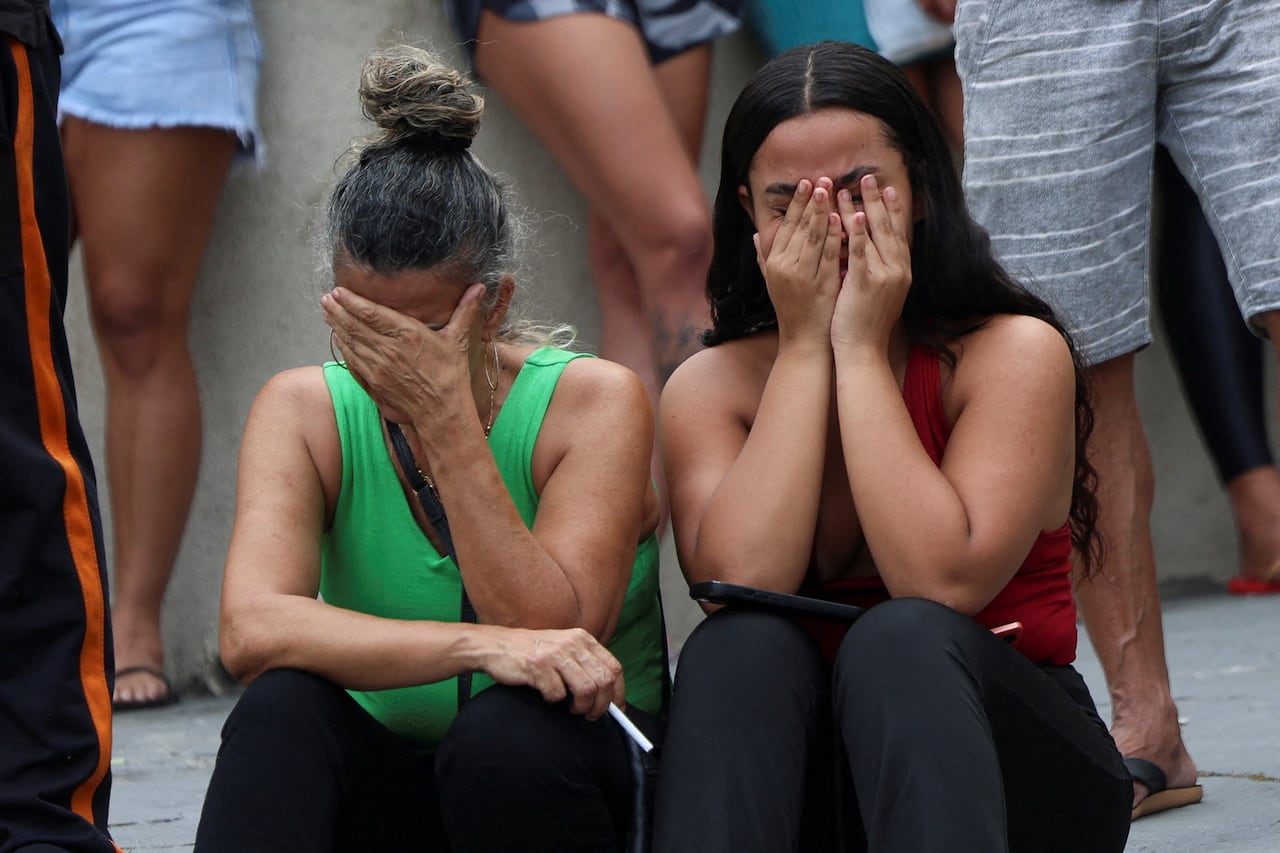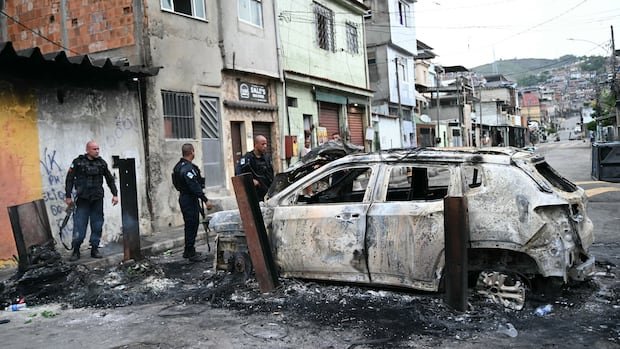The death toll from a massive police raid on a notorious gang in Rio de Janeiro rose Wednesday to 119, including four policemen, Brazilian police said.
The previous toll given by authorities was 60 suspected gang members and four police officers, following Tuesday’s operation by 2,500 police and soldiers that sparked clashes in two low-income neighbourhoods of the city.
The tally of suspects arrested was 113, up from 81, police spokesperson Felipe Curi told a news conference.
The operation was one of the most violent in Brazil’s recent history, with human rights organizations calling for investigations into the deaths.
Justice Minister Ricardo Lewandowski said Wednesday the federal government did not receive advance notice of the raids, and said President Luiz Inácio Lula da Silva was stunned by the number of casualties. Lewandowski plans to meet with provincial officials in Rio.

The operation included helicopters and armoured vehicles and targeted the notorious Red Command gang in the sprawling, low-income favelas of Complexo de Alemao and Penha, police said.
The raid occurred ahead of Rio hosting the C40 global summit of mayors tackling climate change next week. The programming is part of the run-up to COP30, the United Nations climate summit to be held for 10 days in November in the Amazon city of Belem.
‘A huge tragedy’
The United Nations’ human rights body said it was “horrified” by the deadly police operation, called for effective investigations and reminded authorities of their obligations under international human rights law.
César Muñoz, director of Human Rights Watch in Brazil, called Tuesday’s events “a huge tragedy” and a “disaster.”
“The public prosecutor’s office must open its own investigations and clarify the circumstances of each death,” Muñoz said in a statement.

Footage on social media showed fire and smoke rising from the two favelas as gunfire rang out. The city’s Education Department said 46 schools across the two neighbourhoods were closed, and the nearby Federal University of Rio de Janeiro cancelled night classes and told people on campus to seek shelter.
Suspected gang members blocked roads in northern and southeastern Rio in response to the raid, local media reported. At least 70 buses were commandeered to be used in the blockades, causing significant damage, the city’s transit organization Rio Onibus said.
The operation Tuesday followed a year of investigation into the criminal group, police said.
Castro, from the conservative opposition Liberal Party, said earlier the federal government should be providing more support to combat crime — a swipe at Lula’s left-leaning administration.
Gleisi Hoffmann, the Lula administration’s liaison with the parliament, agreed that co-ordinated action was needed but pointed to a recent crackdown on money laundering as an example of the federal government’s action on organized crime.
Emerging from Rio’s prisons, the Red Command criminal gang has expanded its control in favelas in recent years.
Rio has been the scene of lethal police raids for decades. In March 2005, some 29 people were killed in the city’s Baixada Fluminense region, while in May 2021, 28 were killed in the Jacarezinho favela.
‘These are war numbers’
While the police operation on Tuesday was similar to previous ones, its scale was unprecedented, said Luis Flavio Sapori, a sociologist and public safety expert at Pontifical Catholic University of Minas Gerais.
“What’s different about today’s operation is the magnitude of the victims. These are war numbers,” he said.
He argued that these kinds of operations are inefficient because they do not tend to catch the masterminds, but rather target underlings who can later be replaced.
This is not a public safety policy. It’s a policy of extermination– Marielle Franco Institute
“It’s not enough to go in, exchange gunfire, and leave. There’s a lack of strategy in Rio de Janeiro’s public security policy,” Sapori said. “Some lower-ranking members of these factions are killed, but those individuals are quickly replaced by others.”
The operation was also criticized by the Marielle Franco Institute, a non-profit founded by by the family of the councilwoman slain in 2018, to continue her legacy of fighting for the rights of people living in favelas.
“This is not a public safety policy. It’s a policy of extermination, that makes the everyday life of Black and poor people a Russian roulette,” it said in a statement.

